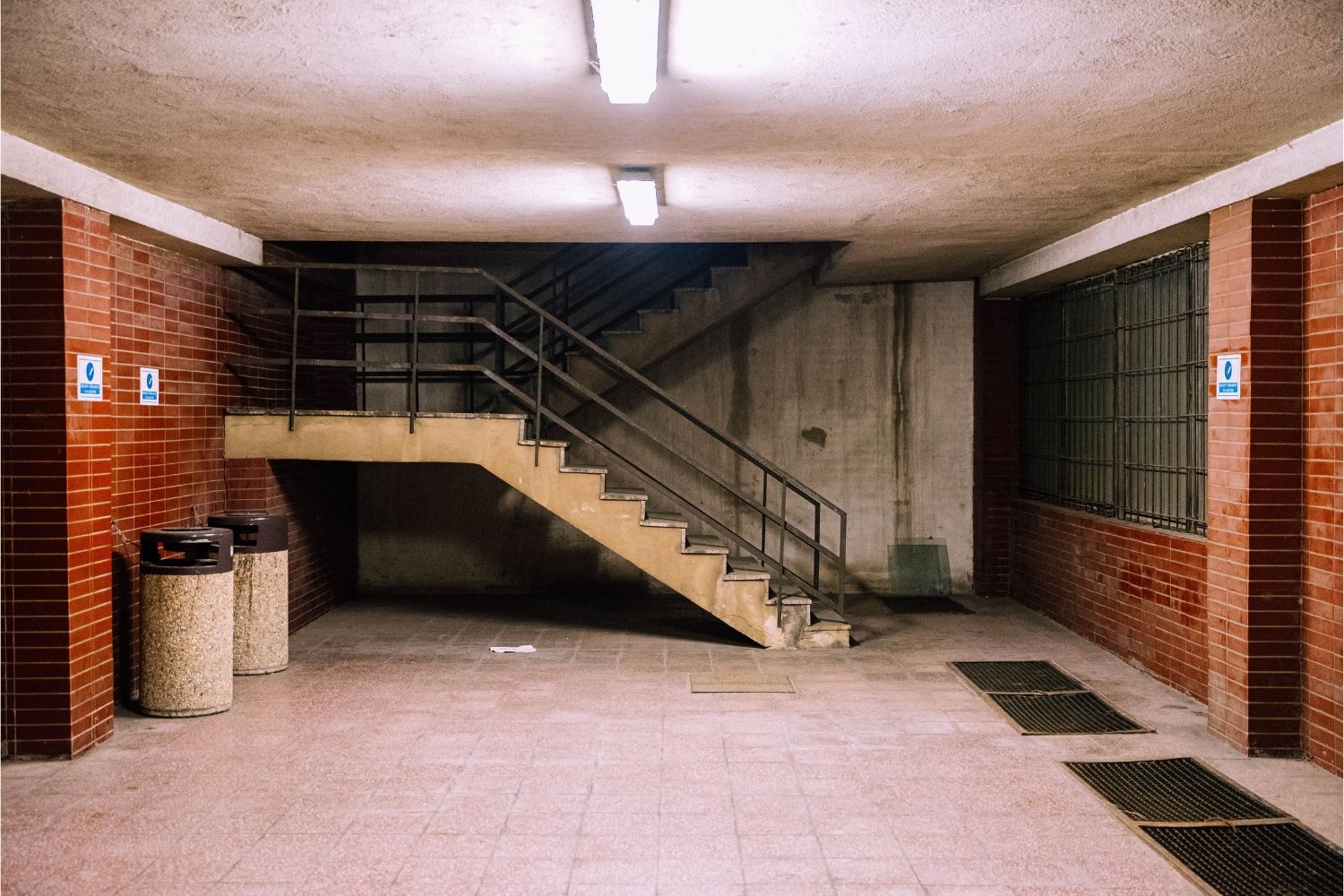The straight answer to the question of whether houses in Idaho have basements is that – most of them do not have a basement.
This happens because of a thing called “Foundation depth”, which refers to the depth of the soil that needs to be dug for the house to be stable, which generally is deeper than the frost line. Foundation depth isn’t very deep in regions like Idaho, so, if one wants to construct a basement, they would need to pay a hefty amount for the excavation.

As we move through this article, we will talk about the different advantages and disadvantages of having a basement, that way you can decide if you want to pursue the possibility of putting in a basement.
However, before we do that, you should know that not everywhere in Idaho can have a basement! This can be due to high water lines, high freezing points, and the amount of money that it takes to mitigate these problems. While a daylight basement (where part of the basement is visible) is the most popular option in the Idaho area, even these are still rare.
Because of many of these concerns, and the cost associated with mitigating it, you don’t find many basements in Idaho.
Who should you talk to decide if a basement is right for your home?
So, you’re thinking about adding a basement to your home. But who should you talk to before making such a big decision? Here are a few people you may want to consult:
Your contractor: If you’re planning to hire a contractor to build the basement, they should be able to give you an estimate of the cost and timeline for the project. They can also help you determine if your home is structurally able to have a basement, both with your home plans, but also for the ground surrounding your home.
Your bank: Depending on how you’re financing the project, you may need to get approval from your bank or another lender. They can help you determine if you can afford the additional cost of a basement, or if you can get financing for this at all.
Your insurance agent: Adding a basement may affect your homeowner’s insurance premium. You’ll want to talk to your agent to see if your policy needs to be updated.
Your real estate agent: If you’re planning to sell your home in the future, your real estate agent can tell you if a basement is likely to increase the value of your home, or might even hurt it?
Can a basement help your home value?
A basement can definitely help increase your home value. Depending on the basement’s size and location, it can either be used as livable space or extra storage.
If you have a basement that is easily accessible and regularly maintained, this can add quite a bit of value to your home. Any bonus rooms or additional living quarters will add even more value, making your home more appealing to potential buyers.
It should be noted, that even if you have a finished basement, it generally does not raise the value of your home in the same way that above ground square footage will.
On the other hand, if your basement is dark and musty with little to no maintenance, this could actually deter buyers and lower your home’s value. In short, a basement can be a great asset when trying to sell your home, but it is important to consider the condition of the basement and how much work would
What do people use instead of basements for a home in Idaho?
The most common ways that people build their homes other than with basements is either a crawl space, or a cement slab.
Crawl spaces are great for people that want to be able to access their homes from underneath, whether that be for plumbing, hydraulic heating and more.
Alternatively, cement slabs are much easier to install, take less time, and are not regularly affected by higher water levels that can flood basements and crawl spaces (you need a good sump pump for this).
Advantages of having a basement
1. Gives More Space
It is a given thing that an underground additional place would give a person the extra space they could use for anything. It also increases the square footage of their house.
Basements are quite useful in the sense that they don’t add height to your apartment or building making them look tall and bulky, instead, your house looks quaint and neat with an abundance of space to store things that you would want to keep away from other people’s eyes.
2. Helps in lowering the Electricity bill
Basements have natural insulation and could also act as natural iceboxes, helping a lot to reduce the electric bill in winter and summer respectively. This happens because the walls of the basement are surrounded by soil.
The soil helps in cooling down the basement during scorching summers.
During winters, it is hard for the heat to escape the room as there are very less openings underground. All this saves the owner from spending a large sum on heating and cooling bills.
3. Provides Natural Soundproofing
As mentioned earlier, three to four walls of the basement are surrounded by soil which helps in keeping any sound produced in the basement to stay within the confinement of your own house.
This is especially helpful since sometimes people are not able to enjoy the music they love or are not able to practice various instruments for fear of disturbing their neighbors and being a nuisance.
This natural soundproofing helps in enjoying one’s hobbies as well as maintaining peace with the neighbors.
4. Cosier Rooms
Many people like the feeling of being enclosed in a cozy place. This feeling of coziness can be easily found in basements!

Disadvantages of having a basement
1. Flooding
Basements could be easily referred to as pits. This implies that whenever there is excessive rain or waterlogging in your home or neighborhood, chances are the water would end up in your basement, making it a mini swimming pool!
This could be rather inconvenient as basements are essentially used as storage rooms and the things stored in the basement could easily get damaged because of the flooding.
2. Lack of Natural Lighting
The biggest struggle of having a basement is arranging for natural lighting in the room. In recent years, there have been many studies claiming a positive correlation between natural lighting and a person’s mental health & overall well-being.
Unfortunately, even though the basement could be a cozy dwelling to live in there would be a lack of natural sunlight. Yet, we could somehow fix this issue by using tube lights and such which are available in the market.
3. Damping
Since there is a lack of natural sunlight and the basements tend to be near the water table, there are high chances that the owner will face the problem of damp walls. Though this problem can be solved with precautions and well-maintenance of the room.
Things you can do with your basement!
If you have decided to have a basement in your house then there could be a lot of fun and useful ways you could utilize the added space. Some of them are mentioned below:
- Hobby Room- You can have the privacy to practice whatever you have always wanted without being embarrassed in your basement!
- Apartment- If you have the money to add additional rooms such as a kitchen and bathroom, you can even rent out your basement for earning a passive income.
Some other ways to use your basements are- Storage room, Home Theatre, Playroom, etc.
Conclusion
The decision to have a basement in your house is a crucial one. One must always take in the pro-cons and have an idea of the geographical conditions beforehand, so that, you don’t have to face any problems after building one.






